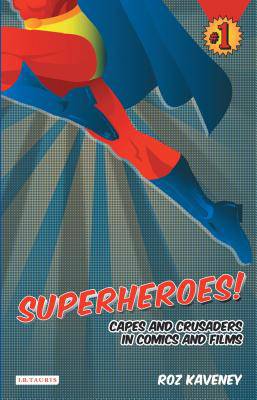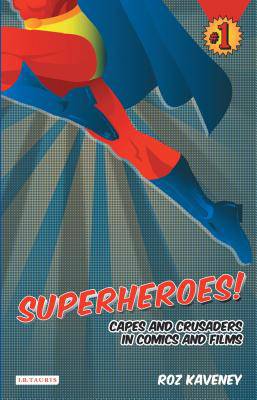
- Afhalen na 1 uur in een winkel met voorraad
- Gratis thuislevering in België vanaf € 30
- Ruim aanbod met 7 miljoen producten
- Afhalen na 1 uur in een winkel met voorraad
- Gratis thuislevering in België vanaf € 30
- Ruim aanbod met 7 miljoen producten
Omschrijving
Modern myths, cheap trash or the objects of fetishist desire? Most people know something about Superman, Batman, Spider-Man and Wonder Woman, even if what they know is heavily filtered through film and television versions, rather than the comics in which they first appeared. Yet, even though the continuity of the DC and Marvel Comics universes rival or surpass in size almost anything else in Western culture, surprisingly little attention has been paid to comics, which we were supposed to grow out of. In "Superheroes!", acclaimed cultural commentator Roz Kaveney argues that this is a mistake, that, at their best, superhero comics are a form in which some writers and artists are doing fascinating work, not in spite of their chosen form, but because of it. "Superheroes!" discusses the slow accretion of comics universes from the thirties to the present day, the ongoing debate within the conventions of the superhero comic about whether superheroes are a good thing and the discussion within the comics fan community of the extent to which superhero comics are disfigured by misogyny and sexism.
Roz Kaveney attempts to explain the differences between Marvel and DC, the notion of the floating present (or why Spider-Man, fifteen when he adopted the costume, is still only in his early thirties), and the various attempts by both companies to re-invent and re-boot individual characters and their entire continuity universes. She also looks at the influence of comics on the group of film and television screenwriters she calls 'the fanboy creators', all of whom moonlight as comics script writers, using Joss Whedon as her case study, and examines the adaptation of well-known comics into large-budget feature films, not always to the advantage of the material.
Specificaties
Betrokkenen
- Auteur(s):
- Uitgeverij:
Inhoud
- Aantal bladzijden:
- 288
- Taal:
- Engels
Eigenschappen
- Productcode (EAN):
- 9781845115692
- Verschijningsdatum:
- 1/03/2008
- Uitvoering:
- Paperback
- Formaat:
- Trade paperback (VS)
- Afmetingen:
- 143 mm x 212 mm
- Gewicht:
- 358 g

Alleen bij Standaard Boekhandel
Beoordelingen
We publiceren alleen reviews die voldoen aan de voorwaarden voor reviews. Bekijk onze voorwaarden voor reviews.








